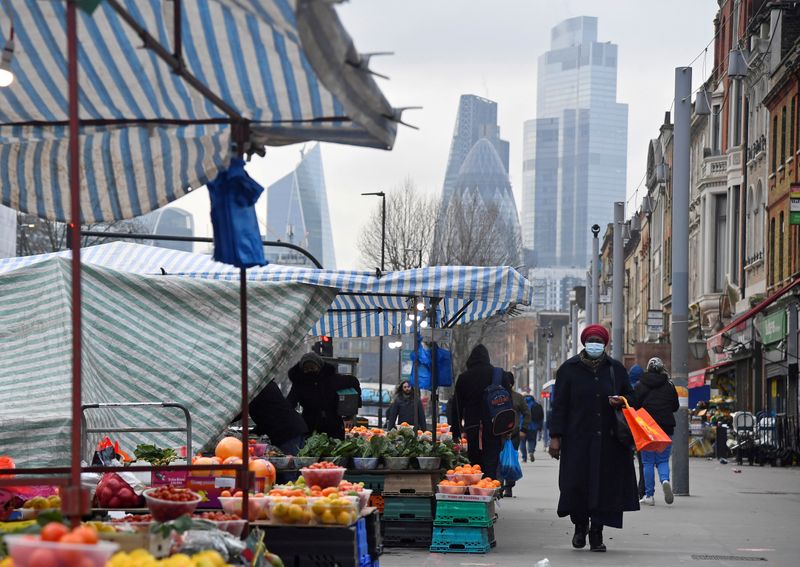LONDON (Reuters) -Online job adverts are on the rise in Britain, pushed up by the reopening of pubs and restaurants and other hospitality firms, and consumers are spending more money on dining out and on travel plans, data published on Thursday showed.
Online job adverts hit 107% of their pre-pandemic February 2020 level on May 7, up by four percentage points from two weeks earlier, figures from jobs website Adzuna showed.
Most sectors saw an increase in job ads with the biggest rise in hospitality, which has seen a 46 percentage-point leap in job ads since early April - before the sector reopened for outdoor customers.
Indoor service is due to resume on Monday, representing a big boost for the industry which has been among the hardest hit by the pandemic and the government's lockdowns to slow it.
There was also strong demand for workers in transport, logistics and warehousing which rose by 18 percentage points over the two weeks to May 7 to 235% of its February 2020 level, adding to a rise since the start of the year.
"It is thought that jobs within this sector are taking longer to fill and accumulating, which is contributing in-part to the higher overall vacancy numbers for this category," the ONS said.
Other figures published by the Office for National Statistics on Thursday showed spending on British credit and debit cards in the week to May 6 was 106% of its February 2020 level, up from 99% a week earlier.
The ONS said the figures showed consumers were spending more on travel, eating out and other activities that are being freed up from coronavirus rules.
The Bank of England expects a rise in spending by consumers, who accumulated savings during lockdowns over the past year, will help drive growth of more than 7% in Britain's economy in 2021 after its almost 10% slump in 2020.

The proportion of the workforce on the government's job-protecting furlough scheme was 11% in the period between April 19 and May 2, down from a previous reading of 13%, the ONS said.
A net 7% of 34,940 firms surveyed by the ONS reported an increase in turnover in March compared with March 2020.